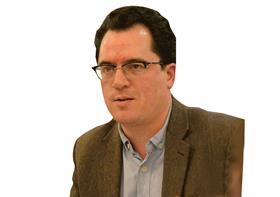In political campaigning, voter data is a goldmine and it wins elections. To pretend otherwise is utter rubbish.

I’ve run the risk of time in jail for around 30 people, some of whom I barely knew. This high-risk activity was the role of election agent – the, normally partisan, official who guarantees the legality of their own campaign’s activities.
So election law stories grab my attention, and election allegations levelled at Facebook, Cambridge Analytica and, this last week, the ‘Leave’ campaign are on the front page and in the news headlines. (All deny breaking the law.)
Three important questions are being asked.
First, were rules broken on election spending? Second, if so did it really make a difference to the result? Third, is election law – designed to ensure ‘fair’ elections – fit for purpose in the era of mass data?
Whether rules were broken is a now a matter for the Electoral Commission, possibly followed by a decision to prosecute and a criminal trial.
It has been implied that the third question doesn’t matter, as the significance of data obtained and used in elections to target messages has been over-hyped by strategists and the consultancies they hire. We should mind our data being passed around, but no harm done, and no need to worry about elections.
Such unconcern is utter rubbish. In political campaigning, voter data is a goldmine and it wins elections.
Traditionally voter data was obtained in fairly low tech ways. There’s canvassing – using the electoral register to knock on a door or phone a house to ask a named person how they will vote.
Surveys are used – tell us what’s most important to you: crime? Litter? Health? Transport? Give us your details, and we’ll keep you up to date with our campaign, etc.
Or you make judgements about an area or a type of person. If the voters in an old people’s home are statistically more likely to vote for you, they’re offered a lift to the polling station. There are different leaflets for leafy streets of Victorian family homes, tower blocks or student halls of residence. You target ‘personalised’ letters at people.
Election law had better be up to managing the use of data because it swings elections, which are very often won or lost on ‘differential turnout’, not policy differences. Hence the huge election day operations to remind supporters to vote (unfortunately termed ‘knocking up’).
Changing someone’s mind is hard. It’s much easier to lower their zeal for your rival candidate or opposing cause to the point where they stay at home, or to energise and cajole your own supporters to the polling booth.
Harvesting people’s Facebook data in the way that has been alleged industrialises tactics on differential turnout, taking it to another level.
So if it happened, that matters.
It matters because the targeted online campaign messages described – from ‘fake news’, to memes, to negative ads - often don’t need a ‘publisher’ to stand by them. Former F1 boss Max Mosley is still answering questions about an anti-immigration election leaflet that bore his imprint as agent decades ago, whereas the creators of much of this targeted material have less cause to worry about future accountability for content.
Central campaigners might also have far exceeded election spending limits designed to even out the fight.
The challenge posed by the era of mass data for the Electoral Commission is huge. To show its practices and the law are still fit for purpose, it needs a strong line on data use. It needs to demonstrate it can get a grip on targeted material that ultimately emanates from the commission of campaigns or consultants in possession of that data. And what can it say about overseas funds or material?
The Electoral Commission needs to be on the front foot with this issue. While its investigations do lead to fines and prosecutions (notably a candidate and his agent in 2017), its remedies rarely include the rerun of elections.
Voter data has always been used to win elections, and it’s silly to pretend otherwise. Right now, as stories on the use of mass data in elections around the world emerge, election law and its application looks like it’s trailing events.
It is worth noting that one matter holding back a 'modern' response to a very modern use of voter data is the government's decision to stall consideration of the Law Commission's 2016 proposals for 'electoral laws... presented within a rational, modern legislative framework, governing all elections and referendums under statute', to ensure, 'that the law governing the conduct of elections and referendums is modern, simple, and fit for purpose'.
The reason for the delay? The very same EU referendum result that's at the centre of current election controversy. As the Law Commission puts it: 'After reviewing our interim report, the UK government stated in late 2016 that work on leaving the European Union, and the attendant unprecedented demand on parliamentary time, means there will not be capacity for an electoral bill to take forward recommendations which require a specific bill.'



























1 Reader's comment